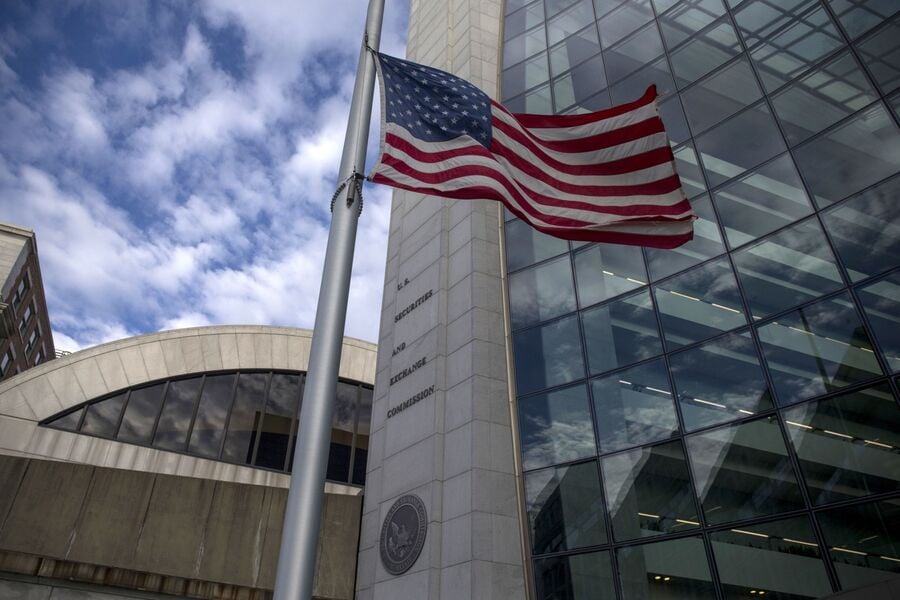

A split SEC approved a regulation Wednesday that beefs up reporting requirements for investment advisors to private funds regarding events that could affect the funds' valuation and potentially pose wider market risks.
The Securities and Exchange Commission adopted the rule on a 3-2 vote, with SEC Chair Gary Gensler and the other two Democratic commissioners in favor and the two Republican commissioners opposed.
The regulation would amend Form PF, a document that hedge funds and private equity funds have had to file since 2011. Private fund advisors currently have to file a Form PF with the SEC on a quarterly basis.
Under the new rule, advisors to hedge funds that have at least $1.5 billion in assets under management must file a report within 72 hours of a “trigger event,” such as extraordinary investment losses, significant margin and default events, and substantial withdrawals and redemptions, among other occurrences.
Private equity fund advisors with at least $150 million in assets under management must file an event report within 60 days of the end of a quarter on trigger events, including removal of a general partner, fund terminations and the occurrence of an advisor-led secondary transaction.
Advisors to private equity firms with at least $2 billion in assets have to include information in their annual report regarding investment strategies, use of leverage and clawbacks of general partners’ performance compensation or limited partners’ distributions.
The changes are designed to give the SEC and the Financial Stability Oversight Council a better grasp on changes at private funds that could harm investors or destabilize the broader markets.
“This is going to be a big operational challenge for fund managers,” said Adam Kanter, a partner at the law firm Mayer Brown. “That 72 hours is going to go by in a blink of an eye.”
A growing trend among investment advisors is to create private funds for their clients. If they are hedge funds and grow to $1.5 billion or more, they will incur a greater regulatory burden, Kanter said. They will have to set up an infrastructure to monitor potential triggering events and report on them.
“Crossing over that line is going to impose a series of costs,” Kanter said.
Prior to the SEC vote, Gensler noted that private funds have tripled in size over the last decade. He said private funds managed by registered investment advisors hold approximately $21 trillion in assets, including $20 trillion reported on Form PF.
“That makes visibility into these funds ever more important,” Gensler said. “I think this final rule — through the greater visibility into private funds it will provide to regulators — will help protect investors and promote financial stability.”
The Republican GOP commissioners questioned the justification for the rule.
The rule is the “latest reflection of the commission’s unquestioning faith in the benevolent power of more, a faith that I do not share,” said commissioner Hester Peirce. “We’ve not explained sufficiently why we need the information we’re mandating and why we need it so quickly. The additional information may tempt regulators to intervene in markets in ways that would undermine long-term market resiliency and exceed jurisdictional bounds.”
Republican commissioner Mark Uyeda said the adopting release “makes broad and sweeping references to ‘systemic risk’ and ‘investor protection’ without providing any examples of private fund failures that would have been prevented or mitigated by the additional burdens the commission seeks to impose.”
Gensler said better information about private funds is required because they’re more tightly connected to the broader capital markets today than ever before.
“History is replete with times when tremors in one corner of the financial system or at one financial institution spill over into the broader economy,” Gensler said. “When that happens, the American public — bystanders to the highway of finance — inevitably gets hurt.”
The SEC also is working on another private fund reporting rule jointly with the Commodity Futures Trading Commission.
“We don’t have the full picture yet,” Kanter said. “We’re looking at one piece of the elephant.”

A new proposal could end the ban on promoting client reviews in states like California and Connecticut, giving state-registered advisors a level playing field with their SEC-registered peers.

Morningstar research data show improved retirement trajectories for self-directors and allocators placed in managed accounts.

Some in the industry say that more UBS financial advisors this year will be heading for the exits.

The Wall Street giant has blasted data middlemen as digital freeloaders, but tech firms and consumer advocates are pushing back.

Research reveals a 4% year-on-year increase in expenses that one in five Americans, including one-quarter of Gen Xers, say they have not planned for.
Orion's Tom Wilson on delivering coordinated, high-touch service in a world where returns alone no longer set you apart.
Barely a decade old, registered index-linked annuities have quickly surged in popularity, thanks to their unique blend of protection and growth potential—an appealing option for investors looking to chart a steadier course through today's choppy market waters, says Myles Lambert, Brighthouse Financial.
